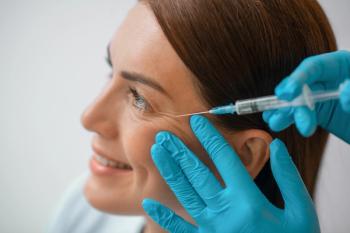
Complications, complaints on the rise
National report - While any doctor can learn to inject needles into the skin, the difficult part of performing facial procedures is assessing the aesthetics of a situation, Ellen C. Gendler, M.D., says.
Trained specialists have "the experience to understand when it's appropriate to inject certain parts of the face and what can be accomplished," says Dr. Gendler, associate professor of dermatology, New York University Medical Center.
With the increasing number of nonspecialists offering cosmetic treatments, dermatologists say they are seeing an increasing number of complications and patient complaints. That's because non-experts simply don't bring the same knowledge and experience to the procedures, they say.
Even for dermatologists, mastering these subtleties takes years.
A lack of such expertise can lead to unsatisfactory results. Amy E. Newburger, M.D., director, Dermatology Consultants of Westchester, N.Y., says a patient whom an oncologist had treated with botulinum toxin presented at her office with one eyebrow nearly an inch higher than the other.
"She'd been told it couldn't be fixed" and charged $1,500, Dr. Newburger says.
"There is greed and a lack of expertise that are going to give the whole field a very bad flavor in the public's mouth," she says. "I'm very concerned about the reputation of our specialty."
"Most of the non-core specialty people who are doing (cosmetic treatments) aren't doing them very well," says Michael Kane, M.D., a plastic surgeon in private practice and author of The Botox Book.
Such physicians create "a fair amount of complications and don't know how to handle them. I've seen these patients in my office" with problems including post-Botox (Allergan Medical) facial asymmetries and duck-like lips after filler injections, he says.
Dr. Gendler says, "Most of these spa places will not be getting a lot of return visitors - one gets what one pays for."
Newsletter
Like what you’re reading? Subscribe to Dermatology Times for weekly updates on therapies, innovations, and real-world practice tips.











